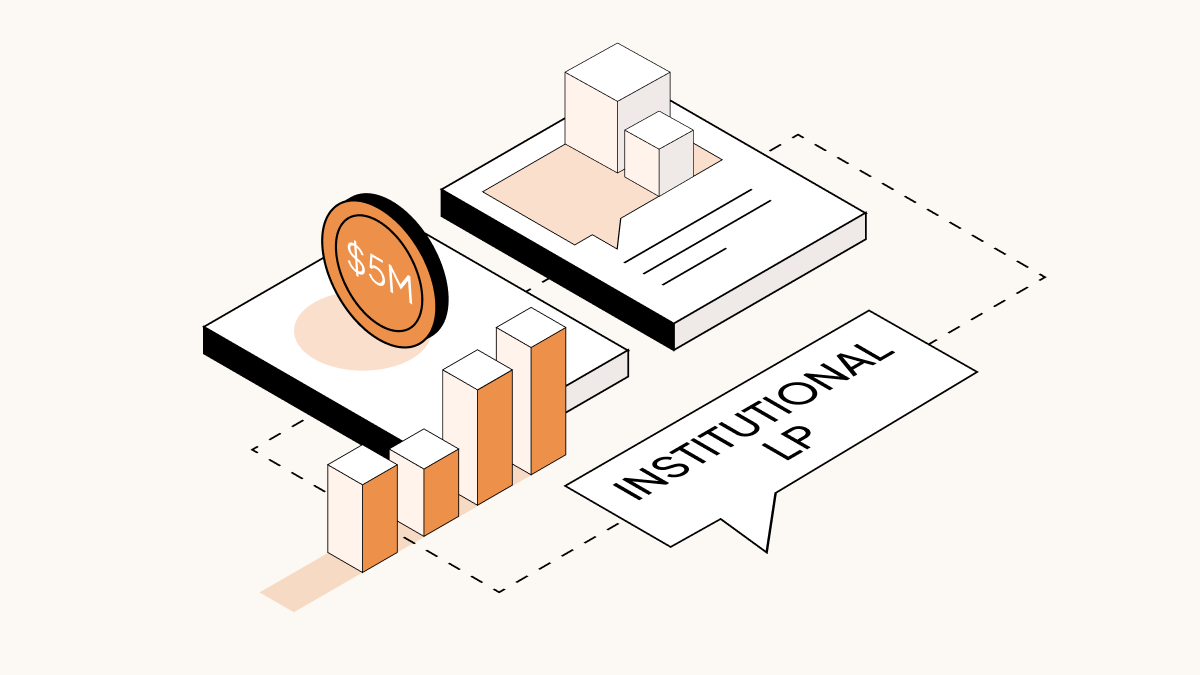Limited partners are the lifeblood of venture capital. Yes, it’s typically the general partners—the VCs themselves—who canvas the market for deals and decide which startups to back. But LPs are the source of the hundreds of billions of dollars that stream through the startup ecosystem.
The opinions and strategies of LPs can thus play a significant role in shaping that ecosystem. When LP strategies change, the flow of capital can change. And the past year has been a time of serious transition in the private markets. How have LP approaches shifted in response?
To find out, we asked an investor at a multibillion-dollar university endowment fund to walk us through their current thinking about the state of the VC market. We granted the investor anonymity so they could speak freely.
Like many other institutional allocators, our anonymous investor—call them Investor Q—works on a very long investment horizon. Their job is to produce steady returns over decades. But even considering that mandate, the market’s twists and turns are impossible to ignore.
“We try to be long term. But everyone says that,” the investor says. “It’s very hard to actually be long term.”
Here’s what else Investor Q had to say.
When scouting new managers, a niche is nice
For a fledgling VC, having access to capital is great. A track record of investment success is even better. But when Investor Q is scouting new fund managers today, they’re looking for something more: A true edge on the market, some differentiating factor that will be impossible for other firms to replicate.
“Across venture and buyouts and growth, it’s pretty much a prerequisite for us to understand how managers provide something other than just capital,” Investor Q says. “How can they win aside from paying the highest price?”
In many cases, that edge is deep industry knowledge. In an environment where new venture fundings have grown fewer and farther between, Investor Q believes specialist firms are better equipped than generalists to locate promising targets.
“Over the last few years, we’ve focused more on niche managers who have real sector expertise, a narrower focus,” Investor Q said. “They go much deeper and they’re building networks in specific places. They tend to all be developing their own deal flow.”
Investor Q thinks this sort of industry knowledge is best deployed at the earlier stages of the startup lifecycle, when VCs are backing startups without much financial history (and perhaps without much of a product). Identifying winners at this opaque stage is more difficult. Data is scarce, so investors rely on personal expertise and instinct.
At later stages, investors have access to more information about company finances, and the companies tend to be better known. Because there’s more data, a late-stage VC is less likely to unearth a deal that other funds have overlooked.
”We’re skeptical that anything at, like, Series B can be proprietary,” Investor Q says.
The value of experience and skepticism
Fund managers from many different backgrounds can thrive in venture capital. But Investor Q thinks the current market is particularly well-suited to those VCs who came to investing after previously working at a startup.
With fewer deals and less capital to go around, founders have been forced to tighten their belts, extend their runways, and prioritize profits over growth. It’s made day-to-day operations more challenging at every stage. As a startup, it helps to work with investors who have firsthand experience navigating those challenges
“On our reference calls with founders, we tend to hear really, really positive feedback about folks who have worked in early-stage companies themselves,” Investor Q says. “People who ran businesses successfully, who had exits, who have credibility from having lived in the trenches.”
A less frothy venture environment can play to the strengths of certain fund managers in other ways. In the past market cycle, when valuations seemed to only go up, Investor Q says the optimists thrived.
“Things got so founder-friendly, I actually don’t think it served you well to have critical investors,” they said. “The approach of spending 15 minutes and writing a $15 million check was actually the right approach for the last three or four years.”
In the past year or 18 months, the skeptic has regained a seat at the table. These days, Investor Q says they’re more drawn to “self-aware and humble” fund managers who acknowledge how difficult building a company can be.
“The market is swinging back into more of a balance,” they said.
A dearth of distributions
In addition to thinking about the best ways to deploy their fund’s capital amid this new-look venture environment, LPs must consider another question: How much capital is available to deploy?
In 2021, VC firms went on a record-breaking exit spree and returned huge sums of money to their LPs in the form of distributions. LPs were then able to rapidly reinvest these distributions into new VC funds, continuing the cycle of cash flow throughout the ecosystem.
This year, however, the pace of VC exits has slowed to a crawl. With less cash coming in, LPs also have less cash to send out through capital calls to other VC fund managers. If a VC fund calls down capital from an LP, the LP must fulfill its commitment. But VCs typically aim to keep their LPs happy—if a VC fund knows its LPs are stretched thin, the VC might try to reduce the frequency and size of its capital calls. So when the exit market slows down, the market for new VC investments tends to slow down, too.
Investor Q says that the frantic pace of exits in 2021 gave their endowment enough of a cushion to get through the current drought. But the recent lull limits the cash that some LPs have at their disposal—and may eventually increase the pressure on VCs to pursue exit opportunities.
”We don’t want to force or encourage rushing of distributions,” Investor Q says. “Especially when there’s excitement about returns going forward from here.”
The denominator effect
Most LPs are mandated to divide their capital across asset classes in certain ways. Some percentage is devoted to public equities, another portion to real estate, another portion to private assets, etc. If valuations in any one part of the portfolio decline, the LP might have to adjust other allocations to maintain the prescribed balance. This need to redistribute assets when allocations get out of whack is called the denominator effect.
This is another factor that has limited LPs in recent months. Between the stock market’s peak at the end of 2021 and its recent low point in late 2022, the S&P 500 fell by nearly 25%, reducing the value of LPs’ public portfolios. To make up for this change and regain portfolio balance, LPs had to pull back from other asset classes, such as VC.
Reducing allocations to a given asset class can have lingering effects for years—especially in the case of private funds with 10-year lifecycles. If an LP puts less cash to work today, they must expect smaller returns in the years when those investments are realized.
“[The denominator effect] has definitely impacted our budget in the near term,” Investor Q says. “We believe that we’re under-allocating a bit to these vintages from last year, this year, and likely 2024.”
The denominator effect can be particularly unfriendly to emerging managers. Investor Q’s fund is still pursuing allocations with new VC managers. But it’s currently much more focused on maintaining and protecting its current ties, in the same way that many VCs are prioritizing their existing portfolio companies over chasing new deals.
“Keeping a tighter capacity for new relationships is the least-bad option we have to gradually get our allocation back within range,” Investor Q says.
The door to new relationships isn’t closed. But the onus is on fund managers to prove their unique worth.
“There’s a consistent desire for this value created by operating, as opposed to financial engineering,” Investor Q says. “The winners and losers will be separated by their ability to really do something special.”

